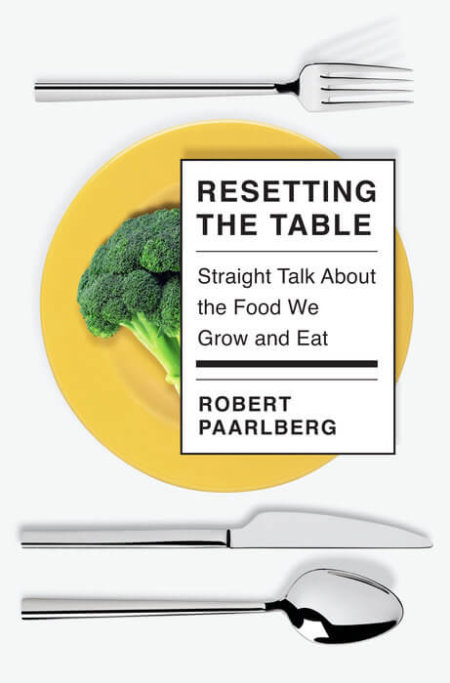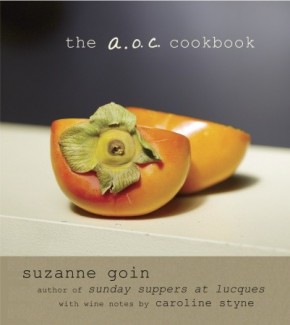Resetting the Table STRAIGHT TALK ABOUT THE FOOD WE GROW AND EAT
A bold, science-based corrective to the groundswell of misinformation about food and how it’s produced, examining in detail local and organic food, food companies, nutrition labeling, ethical treatment of animals, environmental impact, and every other aspect from farm to table
Consumers want to know more about their food–including the farm from which it came, the chemicals used in its production, its nutritional value, how the animals were treated, and the costs to the environment. They are being told that buying organic foods, unprocessed and sourced from small local farms, is the most healthful and sustainable option. Now, Robert Paarlberg reviews the evidence and finds abundant reason to disagree. He delineates the ways in which global food markets have in fact improved our diet, and how “industrial” farming has recently turned green, thanks to GPS-guided precision methods that cut energy use and chemical pollution. He makes clear that America’s serious obesity crisis does not come from farms, or from food deserts, but instead from “food swamps” created by food companies, retailers, and restaurant chains. And he explains how, though animal welfare is lagging behind, progress can be made through continued advocacy, more progressive regulations, and perhaps plant-based imitation meat. He finds solutions that can make sense for farmers and consumers alike and provides a road map through the rapidly changing worlds of food and farming, laying out a practical path to bring the two together.
ROBERT PAARLBERG is adjunct professor of public policy at the Harvard Kennedy School and an associate at Harvard’s Weatherhead Center. He has been a member of the Board of Agriculture and Natural Resources at the National Research Council, a member of the Board of Directors at Winrock International, and a consultant to the International Food Policy Research Institute, the U.S. Agency for International Development, and the Bill and Melinda Gates Foundation. He is the author of Starved for Science, Food Politics, and The United States of Excess. He lives in Massachusetts
“Chapter by chapter, Resetting the Table demolishes the preconceived beliefs of smart eaters raised on progressive, post-1960s culinary social movements . . . Through a mix of history, science and reportage, [Paarlberg] makes a convincing case . . . Resetting the Table is sure to be controversial, and should be widely read and debated.”—Rien Fertel, The Wall Street Journal
“Paarlberg pushes back against fashionable trends touted by the likes of Michael Pollan and Alice Waters, arguing that locavore and pre-industrial practices require a lot of dough, and won’t work for society writ-large . . . A compelling take for anyone interested in food and its future.”—Nina MacLaughlin, The Boston Globe
“Broadly and deeply informed. . . All in all, an almost indispensable guide to our food system—and how to make that system work better.”—Alan Moores, Booklist (starred review)
“A clear-eyed look at the present and future of food production . . . Paarlberg places the blame for our current epidemic of obesity and diet-related health problems firmly on the shoulders of food manufacturing, grocery stores, and restaurants for their promotion of unhealthy food. He concludes that commercial farmers did not bring on the food crisis, but they can help to address it by breaking political ranks and siding with progressive attempts to improve dietary health . . . A book that will be of interest to everyone who is concerned about the health effects of food.”—Rachel Owens, Library Journal
“A perceptive analysis of America’s food system. Paarlberg levels a well-informed, evidence-based critique of a broad swath of players in food production and consumption . . . A cogent, revealing look at the future of food.”—Kirkus Reviews
“Astute . . . Environmentally conscience readers will find much food for thought in this informative narrative.”—Publishers Weekly
“A terrific book. Robert Paarlberg makes clear that if crops don’t come in, little else matters. Resetting the Table shows how the whole world can be fed without environmental harm, and that’s worth listening to. This book accomplishes what is so rare in contemporary writing—being urgent yet reasonable at the same time.”—Gregg Easterbrook, author of It’s Better Than It Looks: Reasons for Optimism in an Age of Fear
“On a topic all too often subjected to wild claims, emotional argument and rejection of evidence in favor of prejudice, Robert Paarlberg brings welcome good sense, a wealth of facts and an eloquent use of language. His suggestions for how to improve our systems of food production, while benefiting the environment, are vitally important.”—Matt Ridley, author of How Innovation Works
“Drawing on a lifetime of global experiences in agriculture and food systems, Paarlberg challenges the concepts of organic, local, and small-scale as the solutions to feeding the world’s population a healthy and sustainable diet. Does the science-based, technology-driven plate he offers provide a path to this goal? Anyone seriously interested in this existential issue should get this highly readable and thoughtful book.”—Walter Willett, author of Eat, Drink, and Be Healthy
“Robert Paarlberg’s Resetting the Table is a fresh, deeply researched and courageous study of the unprecedented challenge of ensuring a healthful diet in an era of super-abundant food. Paarlberg demolishes currently-popular solutions such as local, organic, and micro-scale enterprises, while taking on commercial farmers, food companies and supermarkets for turning a blind eye to problems in the food supply. In doing so, he provides much needed context for all those concerned to bring the food system into line with human needs.”—Rachel Laudan, author of Cuisine and Empire: Cooking in World History
“Resetting the Table is gutsy, objective, and beautifully written. Paarlberg advocates ‘ecomodern’—sensible—farming practices that benefit farmers, the environment, animals, and consumers. In the process he skewers some widespread, but fallacious, criticisms of America’s food system. This book is must reading for anyone seeking to understand controversies over food and farming.”—Michael F. Jacobson, co-founder of the Center for Science in the Public Interest
“In Resetting the Table, Robert Paarlberg fact checks the most central myths of the modern food movement. Paarlberg’s firm grasp on the realities of modern agriculture lend credence to his insights on how we might take meaningful steps toward solving our dietary and environmental ills. He argues that food policy, rather than farm policy, should serve as the focal point of action. In doing so, he offers valuable straight talk to commercial farmers and highlights the critical importance of continued innovation and entrepreneurship in agricultural production. This is a must read book for anyone interested in understanding where their food comes from and the policies that affect how we eat.” —Jayson Lusk, Distinguished Professor and Head, Agricultural Economics Department, Purdue University
“Dr. Paarlberg cogently argues for the potential power and benefits of science in farming—while aptly wondering if we can trust ourselves to use this power responsibly. He neatly clarifies some popular misconceptions—detailing, for example, how U.S. agricultural policy often raises, rather than lowers, prices of subsided U.S. crops—while highlighting largely unrecognized and damaging cultural divides, such as that between commercial farmers and consumers. And, he calls for America’s commercial farmers to help bridge that gap by joining the advocacy movement for better nutrition and health.”—Dariush Mozaffarian, Jean Mayer Professor of Nutrition and Medicine, Friedman School of Nutrition Science & Policy, Tufts University











Leave a Reply